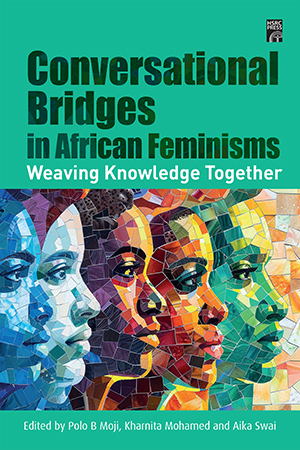BOOKS
Contending Liberalisms in World Politics: Ideology and PowerJames L. Richardson This wide-ranging critique of current endeavors to construct a world order based on neoliberal ideology comes not from a standpoint opposed to liberalism, but from within liberalism itself. After introducing the theme of contending liberalisms, Richardson traces the emergence over time of a distinctive liberal view of international relations and reviews the present state of liberal IR theory. He More > |  |
Contested Ecologies: Dialogues in the South on Nature and KnowledgeLesley Green, editor The chapters in this collection contest the framework of knowledge that has deadlocked nature and culture, tradition and modernity, scientific and indigenous, and in doing so makes a case for the value of rethinking knowledge beyond the nature-culture divide. More > |  |
Context-Sensitive Development: How International NGOs Operate in MyanmarAnthony Ware Focusing on Myanmar, with its perfect storm of extreme poverty, international sanctions, and egregious political repression, Anthony Ware shows how context sensitivity can help development organizations to better meet the needs of their client populations. Ware points out that, while practitioners have questioned universal economic prescriptions for development, they have been less rigorous in More > |  |
Continuing La Causa: Organizing Labor in California's Strawberry FieldsGilbert Felipe Mireles Gilbert Mireles explores the legendary United Farm Workers' campaign to organize laborers—predominantly Latino immigrants—in California's strawberry industry. Tracing the UFW's actions from the picking fields to the world of government offices and corporate boardrooms, Mireles shows how the very traits that made the union such a successful advocate for farm workers also More > |  |
Conversational Bridges in African Feminisms: Weaving Knowledge TogetherPolo B. Moji, Kharnita Mohamed, and Aika Swai, editors Scholars, activists, and artists come together in this innovative collection to highlight the power of dialogue as a mode of knowledge production in building and sustaining African feminist communities. Their wide-ranging exploration encompasses such diverse topics as geopolitics and its influence on women, sexuality, class, global power struggles, and gender-based violence—resulting in More > |  |
Conversations on the Dresden GalleryLouis Aragon and Jean Cocteau, translated by Francis Scarfe This handsome volume presents the complete transcript of a fascinating encounter that took place in 1956. On that occasion, two great French poets, Louis Aragon and Jean Cocteau, came together foran extended conversation on art, the artist, and the creative process itself. The text is accompanied by full-color reproductions of seventy of the Dresden Gallery's most beautiful paintings and More > |  |
Conversations with CarterDon Richardson, editor Jimmy Carter participated in more than two hundred interviews between 1976 and 1996. In the twenty-three conversations presented here, highly regarded interviewers lead President Carter to clarify his public stands and private beliefs. The dialogue created through these encounters demonstrates the growth of a principled man, encapsulating the major debates and concerns of the last quarter More > |  |
Conversion to IslamNehemia Levtzion, editor |  |
Coping with Capital Surges: The Return of Finance to Latin AmericaRicardo Ffrench-Davis and Stephany Griffith-Jones, editors Private capital flows to Latin America have increased dramatically since 1989, approximately doubling in volume each year. This book examines the possible causes and consequences of the new—and unforeseen—wave of investment, from both the borrower and the lender perspectives. The authors first analyze foreign direct investment, securities, and bank lending, considering the motivations More > |  |
Coping with Crisis in African StatesPeter M. Lewis and John W. Harbeson, editors Although large-scale conflicts, political upheavals, and social violence are common problems throughout Africa, individual countries vary greatly in both their susceptibility to these crises and their capacities for responding effectively. What accounts for this variance? How do crises emerge, and how are they resolved? When are unexpected events most likely to spiral into crisis? Are there More > |  |







